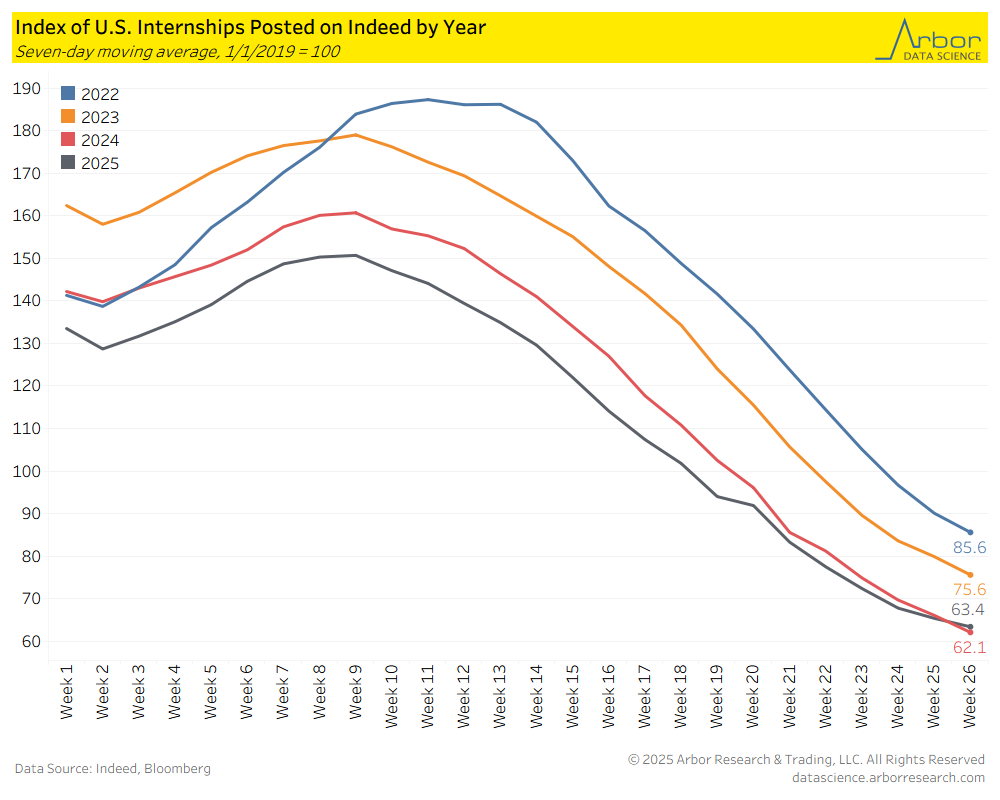Technology changes the way people travel, interact, and engage with the world around them. That is a constant theme across history. And AI is no different. AI creates an incredible amount of opportunity for businesses and consumers. But it is – and will continue to – create disruptions as well. Those disruptions are beginning to show up in hiring data, particularly for entry level employees.
During and following Covid, one of the data points that was closely watched was job openings. There were far more job openings than there were workers looking for jobs. That created wage pressures and angst about a “wage price spiral”. That is no longer the case. The number of job postings has plummeted over the past 18 months for entry level jobs. The higher the exposure to AI, the greater the fall. If you are entry level and looking for a job in an industry with high AI exposure, the openings are lower by 41%.
That is only part of the story. There could be some pushback that maybe companies are keeping their interns instead of looking for new employees. That is unlikely to be the case. The number of intern postings has been slowly and steadily falling. Maybe it is because ChatGPT makes it easier to new employees. Or maybe it is simply lower demand for interns. Maybe it is both.
These changes are beginning to affect the data. Setting aside the recent data issues at the BLS (which is nothing new), the statistics focusing on young workers and recent graduates is less than stellar. Interestingly, the differential between the all workers unemployment rate and the recent graduates has flipped in recent years. Prior to Covid, recent graduates fared well in the jobs market (in part due to less whipsaw during downturns). That is no longer the case. Young workers generally have seen their job prospects deteriorate relative to the broader market for a long time. And AI is not going to make that easier.
AI is going to change many things. And the labor market is going to feel it in numerous ways as well. Younger workers are going to need to navigate this reality, and concentrate on developing skills that are not dramatically affected by the shifts AI is creating. That may take time. But markets and labor are adept at shifting from one technological development to another.





